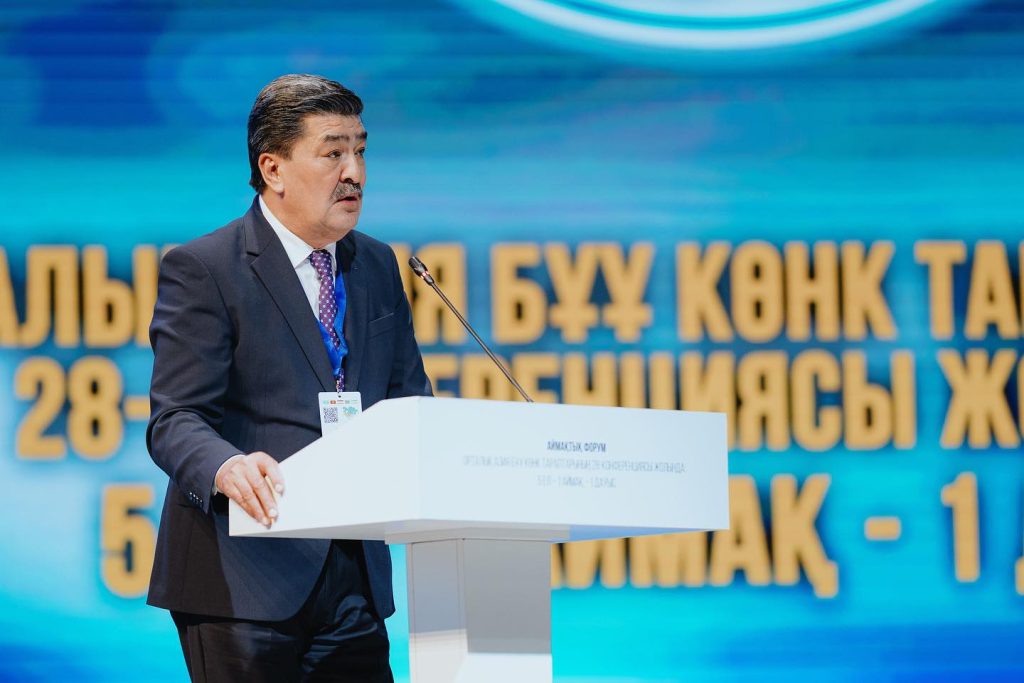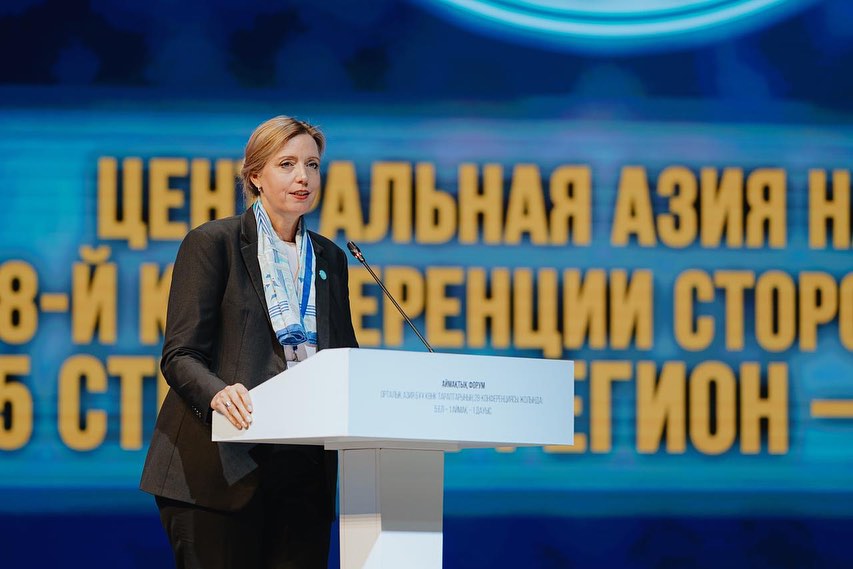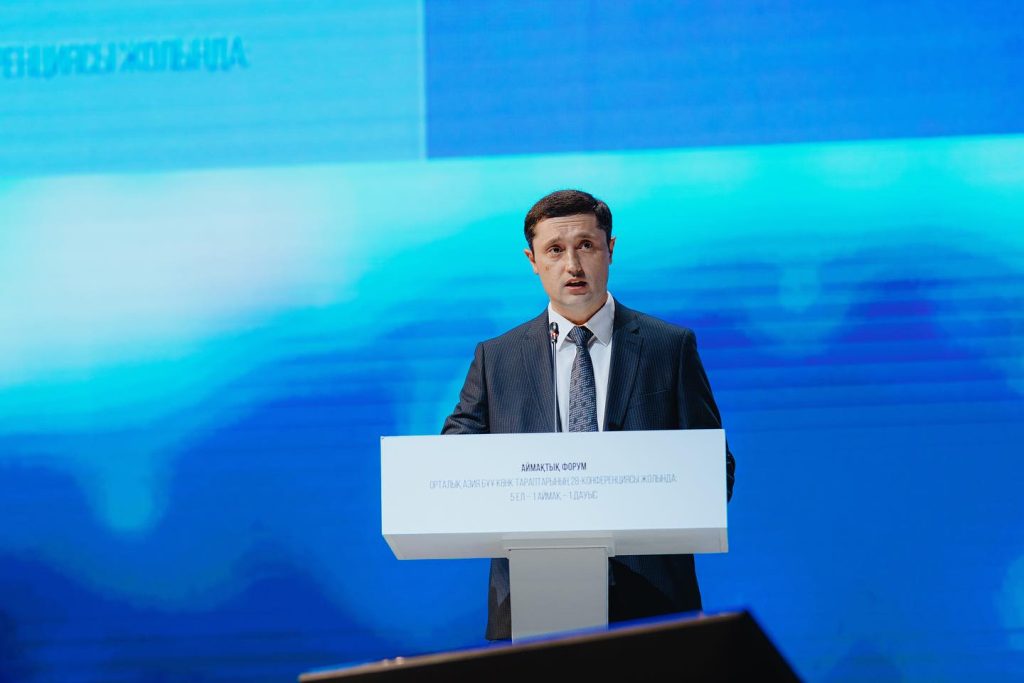Assel Satubaldina
Representatives of Central Asian countries and international organizations convened in the Kazakh capital on Nov. 7 to explore where the countries stand in their efforts to address climate change and come up with a joint regional strategy in the run-up to the 2023 United Nations Climate Change Conference, more commonly referred to as COP28.
The global conference is set to kick off on Nov. 30 in Dubai and will last through Dec. 12.
The forum, organized by the International Center for Green Technologies and Investment Projects (IGTIC) and the Regional Environmental Center for Central Asia, brought together more than 200 participants, including climate leaders from Central Asian countries, representatives of government agencies, the business community, international organizations and non-governmental organizations.
The participants underlined the urgent need for Central Asia to have one voice in addressing the consequences of climate change.
Kazakh Minister of Ecology and Natural Resources Yerlan Nyssanbayev said Central Asia, a region with vast natural resources and diverse climatic conditions, is highly vulnerable to climate change.
“This year, Kazakhstan adopted a carbon neutrality strategy until 2060 which serves as a guideline for deep decarbonization of the economy and identifies national contributions. We aim to cut greenhouse gas emissions by 15% by 2030. We also improved the ecological legislation, adopting a new Environmental Code,” said the minister.
He recalled Kazakhstan’s initiative to host the Regional Climate Summit in 2026.
Michaela Friberg-Storey, UN Resident Coordinator in Kazakhstan, shared concerns about the world being “off track” in its path toward sustainable development goals (SDG).
“There is a chance that we are about to change the planet so much that we alter the living conditions for all life on Earth – for animals, the oceans, for plants, and for us humans. That is why the sustainable development goals remain so important,” she said.
She noted that at the SDG Summit in New York in September, world leaders agreed to focus on six key transitions. These include education, jobs and social protection, energy, digitalization, food systems, and climate change and biodiversity.
Friberg-Storey stressed Central Asia needs to be one voice.
“We need the multilateralism and the strong voice that Central Asia can be together and Kazakhstan is such an active part,” she said. The Regional Climate Summit to be hosted in Kazakhstan in 2026 is one of the examples of multilateral dialogue, she added.
“As the United Nations, we will continue supporting Central Asian countries and we are going to do everything we can to link the countries to the multilateral and global agenda,” said Friberg-Storey.
Zafar Makhmudov, executive director of the Regional Environmental Center for Central Asia (CAREC), touted the strong political will to join efforts in the climate agenda demonstrated by Central Asian leaders.
“It is more effective to address the consequences of climate change together. The leaders of Central Asian countries almost at all their meetings always call for cooperation at the regional level,” he said.
Makhmudov emphasized that CAREC, founded 20 years ago, is the only organization in the region that has a mandate and practical experience in addressing regional, transborder, and national projects on the ground.
The upcoming COP 28 will be the second time Central Asia will have a joint pavilion. The first time was at COP26 in Glasgow in November 2021. ///Originally published by The Astana Times, 8 November 2023. Link: https://astanatimes.com/2023/11/regional-forum-in-astana-focuses-on-joint-central-asian-strategy-in-run-up-to-cop28-in-dubai/
#COP28, #Central_Asia, #climate_change, #CAREC

